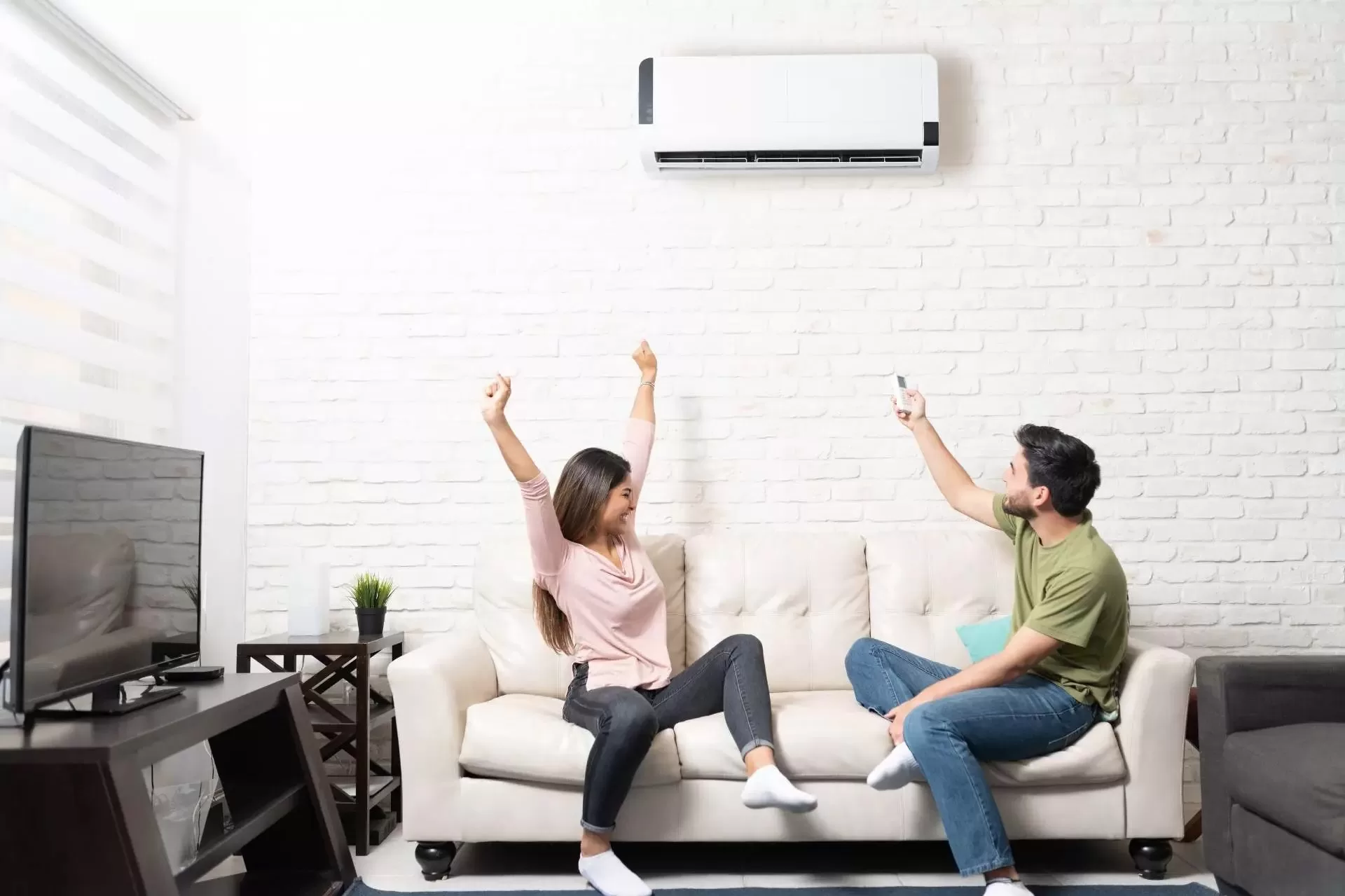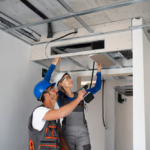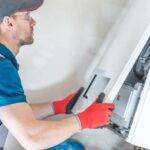Importance of maintaining efficient heating
Maintaining an efficient heating system is crucial to ensure your home stays warm and comfortable during the colder months. Regular maintenance helps prevent breakdowns and expensive repairs, saves energy, and extends the lifespan of your heating system. It also ensures that the air quality in your home remains healthy by reducing the risk of dust and other pollutants circulating through your vents. Regular maintenance also helps to identify and address any potential safety issues, ensuring the safe operation of your heating system.

Signs of an inefficient heating system
If your heating system is not working efficiently, you may notice some signs like uneven heating throughout your home, strange noises coming from the system, a sudden increase in your energy bills, or frequent cycling on and off. Additionally, if your home feels excessively dry or dusty, it could be a sign of poor humidity control, which is connected to your heating system. Regular maintenance and attention to these signs can help ensure your heating system stays efficient.
Regular maintenance tips for efficient heating
Regular maintenance is crucial to keeping your heating system efficient and reliable. Here are some important tips to help you maintain your system:
- Replace filters: Change your filters regularly to ensure proper airflow and keep your system running efficiently.
- Clean vents and ducts: Clear any debris and dust from vents and ducts to maintain good air circulation.
- Check for leaks: Regularly inspect your system for any leaks or damage to ensure it continues to work effectively.
- Schedule professional maintenance: Have a professional inspect and tune up your heating system annually to catch any issues early and keep it operating at its best.
Upgrading to an energy-efficient heating system
Upgrading to an energy-efficient heating system can help you save money on your energy bills and reduce your environmental impact. The initial cost of upgrading to an energy-efficient system may seem high, but the long-term savings and benefits make it a worthwhile investment. According to the U.S. Department of Energy, high-efficiency heating systems can reduce your energy consumption by up to 30%. Upgrading to an energy-efficient system may also make you eligible for rebates or tax incentives, further offsetting the initial costs. Consider the following factors when upgrading to an energy-efficient heating system:
- Conduct a home energy audit to assess your heating needs and identify areas for improvement
- Research different types of energy-efficient heating systems, such as high-efficiency furnaces, heat pumps, or radiant floor heating
- Consult with a professional HVAC technician to determine the best options for your home and budget
- Consider the long-term energy savings and environmental benefits when evaluating the overall cost of upgrading
- Check for available rebates, tax credits, and financing options to help offset the initial investment costs.
Understanding thermostat settings
When it comes to understanding thermostat settings, it’s important to know that the temperature you set affects your heating system’s efficiency. Here are a few key points to consider:
- Set the temperature to a comfortable level for when you are home and lower it when you are away to save energy.
- Programming your thermostat to automatically adjust the temperature at different times of day can also help save energy.
- Regularly checking and replacing the thermostat’s batteries will ensure it continues to function properly.
By understanding these thermostat settings, you can maximize the efficiency of your heating system and save on energy costs.
Importance of proper insulation for efficient heating
Ensuring proper insulation is essential for maintaining an efficient heating system. Without proper insulation, heat can escape from your home, leading to higher energy bills and a less comfortable indoor environment. Here are a few reasons why proper insulation is important for efficient heating:
- Prevents Heat Loss: Good insulation helps to trap heat inside your home, reducing the amount of energy needed to keep it warm.
- Energy Efficiency: Proper insulation can lower your heating costs by reducing the need for continuous heating to maintain a comfortable temperature.
- Comfort: Well-insulated spaces can maintain a consistent and comfortable temperature throughout the year, creating a cozy living environment.
By investing in proper insulation, homeowners can improve the efficiency of their heating system, reduce energy expenses, and create a more comfortable living space.
Air duct maintenance and cleaning
If you want to keep your heating system running efficiently, you need to make sure your air ducts are well maintained and clean. Here are some key points to remember:
- Regular air duct cleaning can help improve the air quality in your home and reduce the risk of respiratory issues.
- A professional duct cleaning service can remove dust, debris, and mold from your ductwork, ensuring that your heating system works at its best.
- Consider getting your air ducts inspected and cleaned at least every 3-5 years, or more often if you have pets or allergy sufferers in your home.
- By keeping your air ducts clean, you can help prevent your heating system from working harder than necessary, which can lead to increased energy consumption and higher utility bills.
DIY tips for maintaining an efficient heating system
To keep your heating system efficient, you can follow these Do-It-Yourself (DIY) tips:
- Regularly clean or replace air filters to ensure proper airflow and efficiency
- Check and seal any air leaks in your ductwork to prevent heat loss
- Keep the area around your heating system clean and free from debris
- Schedule an annual professional inspection and maintenance of your heating system to keep it running smoothly
Benefits of professional heating system maintenance
Professional maintenance can significantly increase the lifespan of your heating system and ensure it operates efficiently. Here are some key benefits of professional maintenance:
- Improved Performance: Regular maintenance keeps your heating system running smoothly, providing consistent warmth in your home.
- Energy Efficiency: Proper maintenance reduces energy consumption, saving you money on utility bills.
- Cost Savings: Identify and fix minor issues before they turn into costly repairs.
- Safety: Prevent potential hazards such as carbon monoxide leaks by ensuring your heating system is well-maintained.
- Warranty Protection: Many manufacturer warranties require regular professional maintenance to remain valid.
- Peace of Mind: With a well-maintained heating system, you can have confidence in its reliability during the colder months.
Conclusion and summary
Maintaining an efficient heating system is crucial for ensuring the comfort and warmth of your home. By following the comprehensive guide provided in this blog, you can optimize the performance of your heating system and prolong its lifespan. Regular maintenance, including cleaning, inspecting, and replacing components as needed, will help you avoid costly repairs and ensure that your heating system operates at its best. Additionally, being mindful of energy-efficient practices will not only save you money on utility bills but also reduce your environmental impact. Remember, a well-maintained heating system will keep you cozy and comfortable throughout the colder months.




